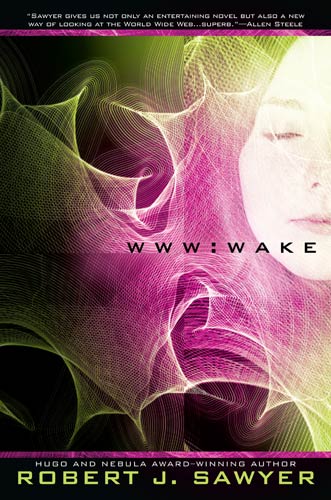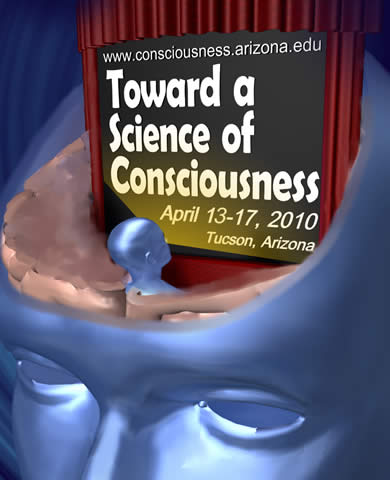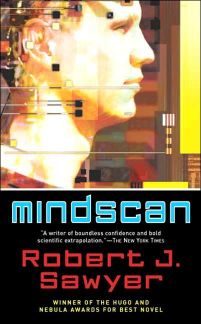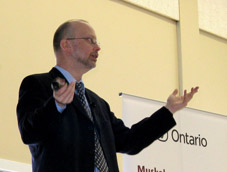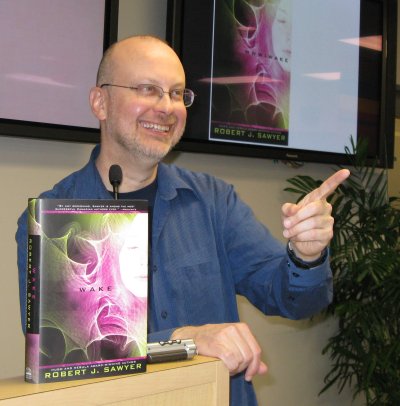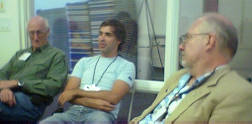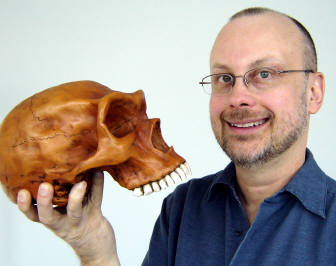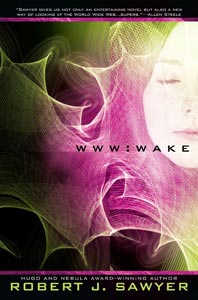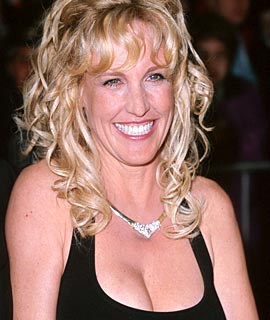Toward a Science of Consciousness
I'm giving a keynote at this upcoming conference, my great friends James Kerwin and Chase Masterson will be on hand to talk about their quantum-physics noir movie Yesterday was a Lie, and Chase will be singing songs from Star Trek on Wednesday night. Join us!
Toward a Science of Consciousness 2010
April 12-17, 2010
Tucson Convention Center and Hotel Arizona, Tucson, Arizona
Sponsored by the Center for Consciousness Studies, The University of Arizona
www.consciousness.arizona.edu
The program for the ninth biennial interdisciplinary conference ‘Toward a Science of Consciousness 2010’ is complete. Held in even-numbered years since 1994, the Tucson conferences are the major world gatherings on a broad spectrum of approaches to the fundamental question of how the brain produces conscious experience, a question which addresses who we are, the nature of reality and our place in the universe. An estimated 700 scientists, philosophers, psychologists, experientialists, artists and others from 43 countries on 6 continents will participate in 400 presentations included in 17 Pre-Conference Workshops, 12 Plenary or Keynote sessions, 21 Concurrent Talk sessions, 2 Poster Sessions, 3 Art-Tech interactive sessions and special evening performances. Abstracts for all presentations will be posted at www.consciousness.arizona.edu
Plenary Program Overview
Highlights of the 2010 Plenary Program will include Keynote speaker Antonio Damasio, the esteemed neurologist and best-selling author on how the Self arises from layers of processes from brainstem to cortex. Other Keynotes include psychiatrist/neuroscientist Karl Deisseroth on new technologies revealing brain circuits of the conscious mind, and Robert J. Sawyer, award-winning science fiction writer whose works (FlashForward, Mindscan, Hominids, etc.) feature various science-based aspects of consciousness.
Twin Keynotes by two prominent neuroscientists will present opposing views of an essential question arising from functional brain imaging: how does brain activity measured in the absence of sensory inputs relate to consciousness? Marcus Raichle describes this brain Dark Energy (see his cover piece in the March 2010 Scientific American) as default networks mediating thinking and daydreaming, toggling back-and-forth with stimulus-related processing and tasks. Robert G. Shulman contends that the underlying activity is a foundational substrate for all conscious processes which require critical levels of brain energy. A related Plenary Session is Mindwandering, conscious activity independent of sensory stimuli (Jonathan Schooler, Malia Mason, Jonathan Smallwood).
In Bodily Consciousness, Henrik Ehrsson will discuss and extend his well-known work on inducing out-of-body experiences in normal subjects, while Frederique de Vignemont
will distinguish different forms of conscious body awareness. Multi-Modal Experience will include synesthate and author Patricia Lynne Duffy describing her personal experience with fused and cross-wired senses, as well as how synesthesia affects and enables artists, writers, performers and scientists. Other speakers (Barry Stein, Casey O’Callaghan, Michael Proulx) will address the neuroscience and philosophical analysis of synesthesia, and how clinically-induced cross-modal perception can help blindness and other sensory defects.
Consciousness and Transformation will review long-term changes induced by meditation (Cassie Vieten), and analyze claims of enlightenment, mystical and transcendental experience (Jeffrey Martin). The session concludes with Za Rinpoche, a Tibetan Lama recognized in 1984 by the Dalai Lama as the sixth reincarnation of Zachoeje Lama. Author of Backdoor to Enlightenment, Za Rinpoche will discuss Buddhist perspectives on consciousness, enlightenment and reincarnation.
Machine Consciousness will feature IBM researcher Dharmendra Modha on efforts to simulate the brain through neuron-by-neuron reconstruction, and philosopher David Chalmers discussing prospects for a technological Singularity, the idea that human-level artificial intelligence (AI) will rapidly spiral to superintelligence. AI researcher Ben Goertzel will describe mobile bubbles of executive function moving through computer architectures.
Theories of Consciousness features Sid Kouider summarizing and critiquing prevalent neurocognitive theories, and Marc Ebner with simulations of consciousness as a mobile zone of synchrony moving through the brain. Philosopher Galen Strawson will address philosophical theories of consciousness, focusing especially on panpsychism.
New Directions in Neural Correlates of Consciousness (NCC) Research is a panel of fresh ideas from young researchers. In the context of default networks, Michal Gruberger will discuss the use of deep trans-cranial magnetic stimulation inhibiting prefrontal cortex in human subjects, with alterations in measures related to the sense of self. Philosophers Adrienne Prettyman and Stephen Biggs will analyze the claim that default networks represent the baseline state of the brain. Moran Cerf will report on recordings from single neurons in conscious human subjects, showing how activity in medial temporal lobe can regulate sensory entry into conscious awareness. Finally, Anirban Bhandyophadyay will discuss molecular ‘nanobrains’, and new experimental results suggesting microtubules are the missing fourth circuit element.
The William James Centennial session will open the Plenary Program as a tribute to the father of American psychology and philosophy who died in 1910. Eugene Taylor will discuss James in the context of modern approaches, Bernard Baars will describe how James’ disillusionment led to behaviorism which banished consciousness from science for seven decades. Bruce Mangan concludes with what James termed the fringe, cognitive information just outside consciousness which, Mangan argues, illuminates insight and mystical experience.
For further information, see www.consciousness.arizona.edu
Robert J. Sawyer online:
Website • Facebook • Twitter • Newsgroup • Email
